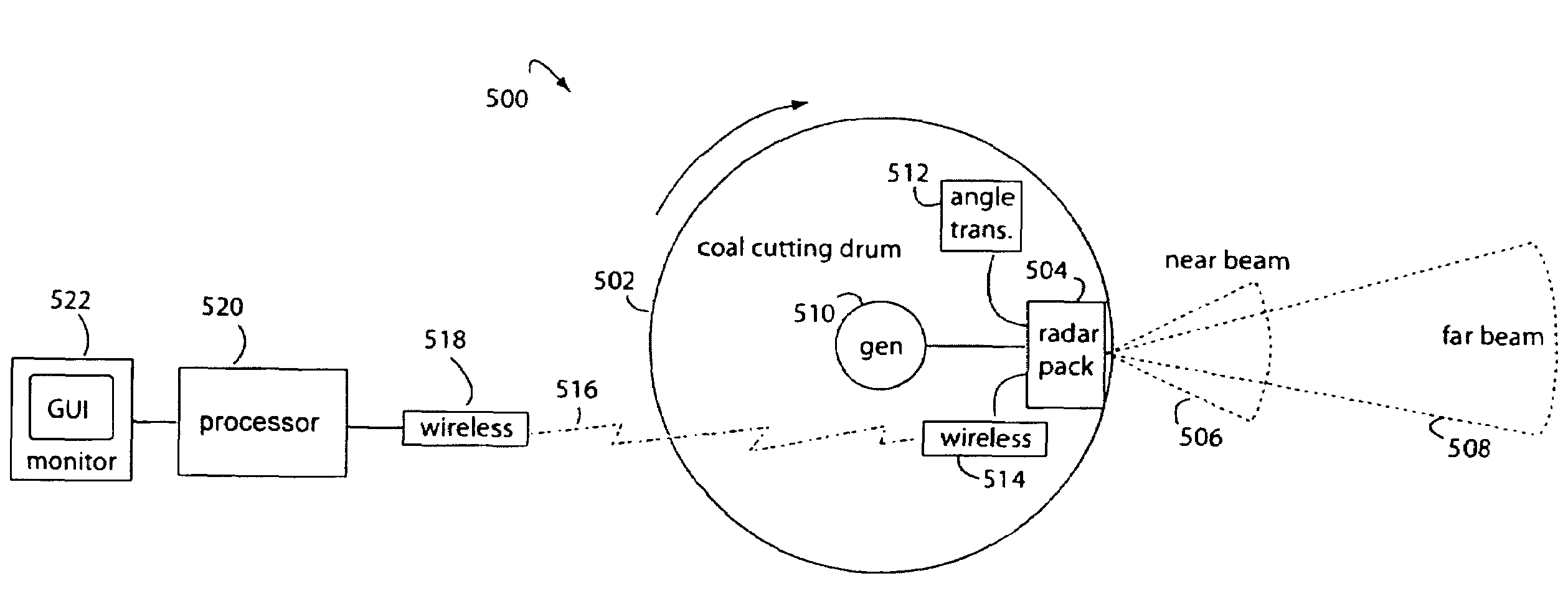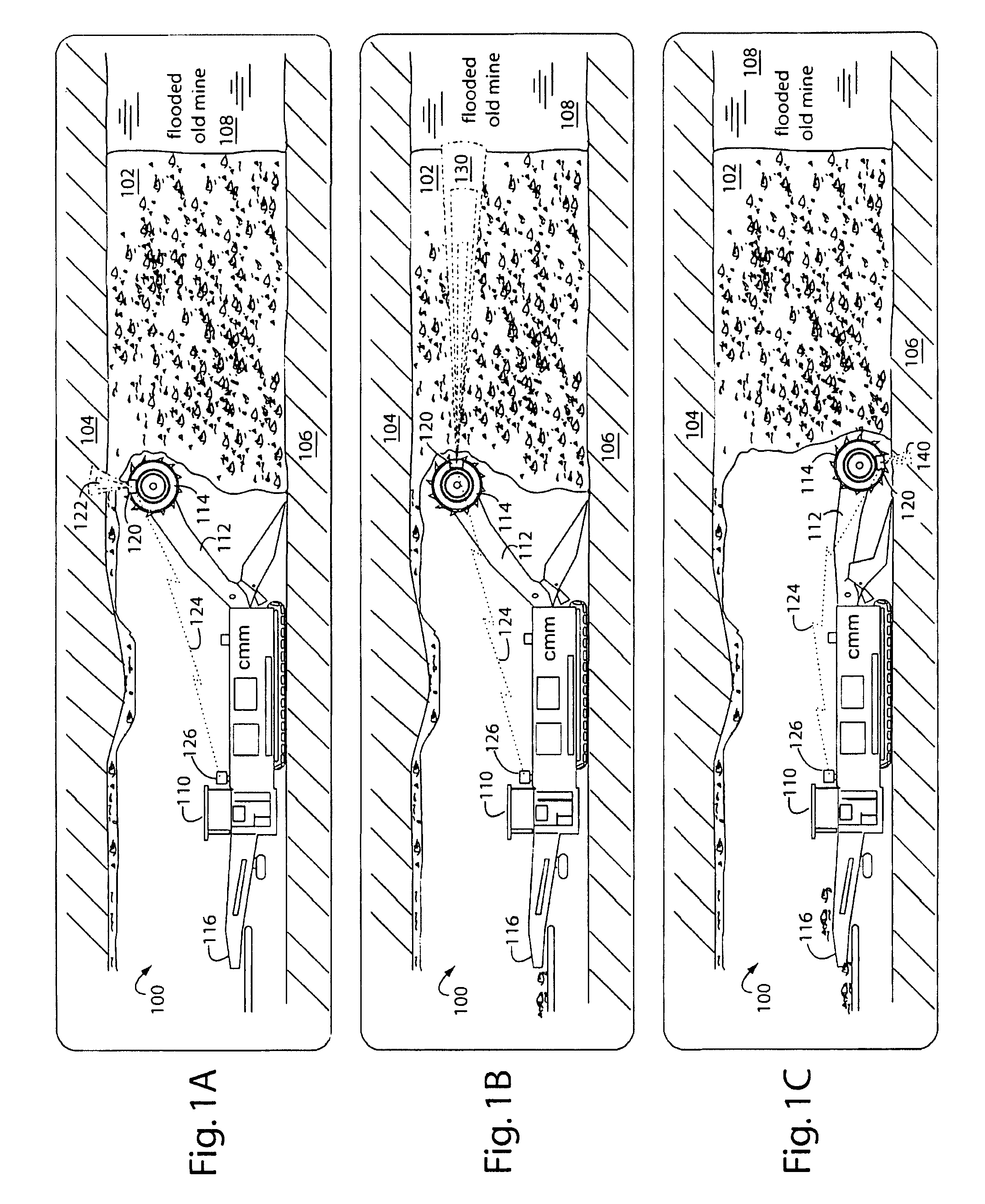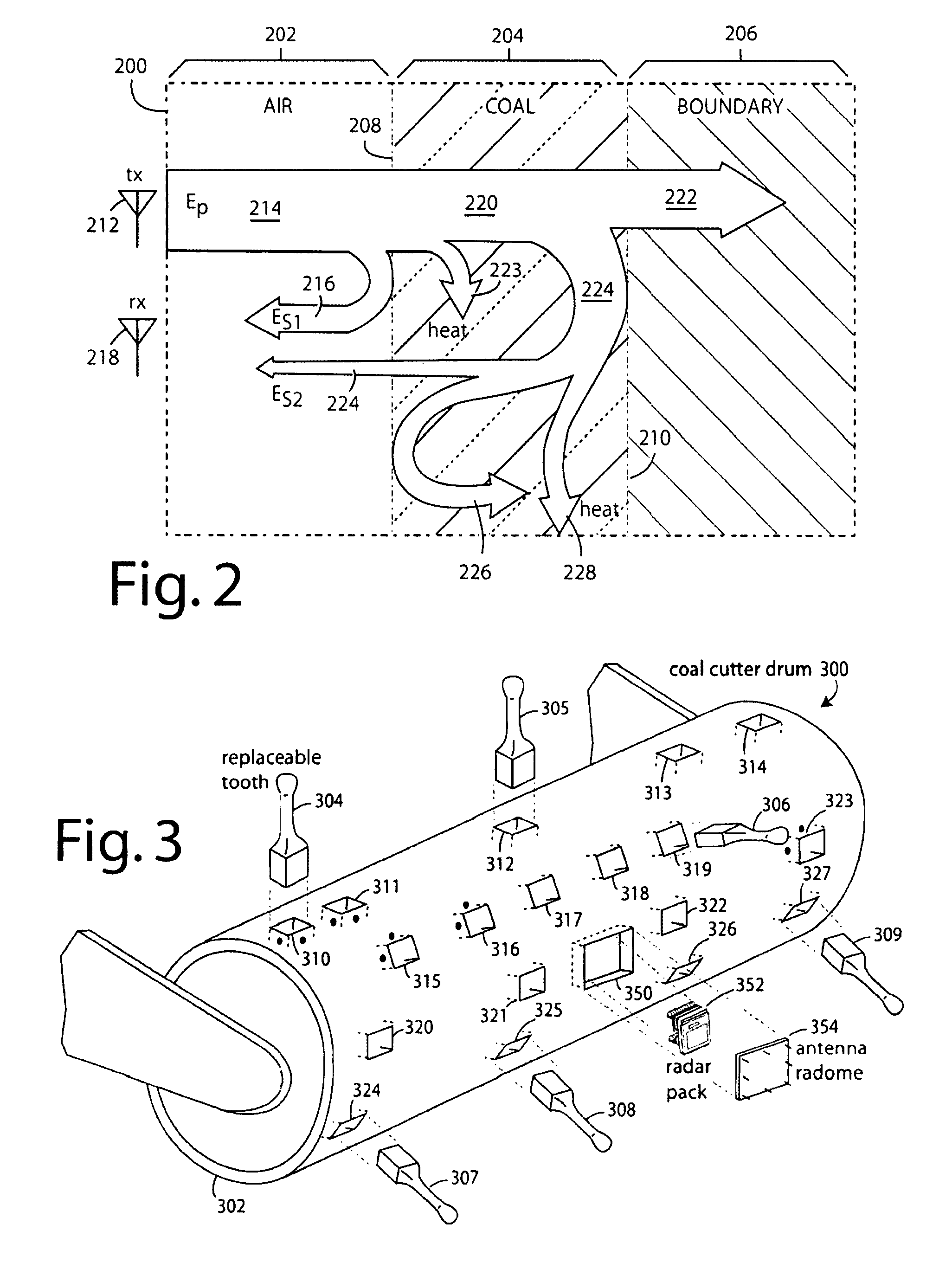Double-sideband suppressed-carrier radar to null near-field reflections from a first interface between media layers
a carrier radar and a double-sideband technology, applied in the field of ground penetration radars, can solve the problems of contamination, reducing the potential for a roof fall, and easy-to-mine coal reserves nearing exhaustion, and reducing the gas flow permeability near the boundary
- Summary
- Abstract
- Description
- Claims
- Application Information
AI Technical Summary
Benefits of technology
Problems solved by technology
Method used
Image
Examples
Embodiment Construction
[0029]FIGS. 1A-1C represent a continuous mining machine system embodiment of the present invention, and is referred to herein by the general reference numeral 100. A coalbed 102 has an overburden 104 such as mudstone and / or sandstone, and an underburden 106 such as fireclay. Near the interfaces, the quality of the coal is not so good, e.g., increased levels of sulphur contamination. A typical contaminated coal near the ceiling interface can have a BTU rating of 8,500, sulfur of 5%, ash of 20%, and a density of 1.45. The main coal deposit 102 can be much better, e.g., a BTU rating of 10,680, a sulfur of 0.46%, ash of 7.4%, and a density of 1.3. The real-time horizon sensor enables the machine to leave the contaminated layer of coal in place and improve run-of-mine coal quality.
[0030]In order to exemplify one of the uses of system 100, an old mine 108 adjacent to the works is flooded and presents a grave danger to the miners if a separating barrier pillar wall is punctured. The exact ...
PUM
 Login to View More
Login to View More Abstract
Description
Claims
Application Information
 Login to View More
Login to View More - R&D
- Intellectual Property
- Life Sciences
- Materials
- Tech Scout
- Unparalleled Data Quality
- Higher Quality Content
- 60% Fewer Hallucinations
Browse by: Latest US Patents, China's latest patents, Technical Efficacy Thesaurus, Application Domain, Technology Topic, Popular Technical Reports.
© 2025 PatSnap. All rights reserved.Legal|Privacy policy|Modern Slavery Act Transparency Statement|Sitemap|About US| Contact US: help@patsnap.com



